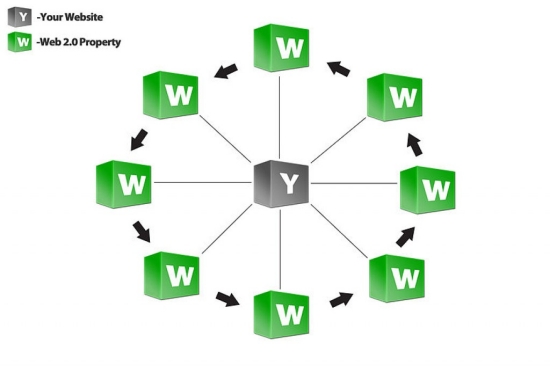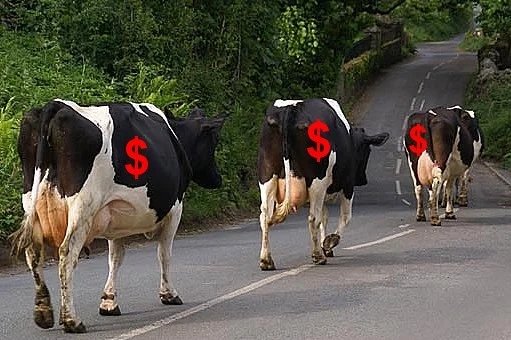Building Self Sustaining Websites for Passive Income
The concept of a self-sustaining website is to build a site that will look after itself, sending you a steady stream of income without requiring any on-going maintenance.
In a sense a this articles website is self-sustaining once you have completed the article and built the links to generate the page rank, so people will find it in various searches and on various social network sites. Once you have loaded the article with its advertisements there is not a lot to do apart from link building and networking with other sites.
The next step is to build a niche website of your own, with perhaps ten to thousands of pages that will generate passive income for you.
The key to the success of self-sustaining websites is to create a targeted site that helps solve problems, sells things that people want to buy or that offers great information or solutions to problems. The key elements needed are to ensure:
- It needs to be kept up to date and fresh, with new content added periodically.
- It needs a high ranking so that people will find it and use it.
- It needs to be run automatically with very little ongoing maintenance from you.
Potentially a self sustaining website can earn much more money than a hubpage, and you can develop more and more of these cash cows.


What is a Self-Sustaining Website?

Self-sustaining web sites are ones which you don't need to update very often, if at all. The net earnings from these sites need to initially to cover the basic costs such as for domain name registration and monthly web hosting fees. Once established they can hopefully earn a lot more income for you.
I have tried this concept a couple of times and the major stumbling block, as with any website, is building backlinks and generating enough page rank to make it work.
Many people have argued that you need to focus on a particular niche that is popular but does not have much competition. This will make it easier to get high Page Ranks and will increase the traffic to your site.
Lets look at some of the key requirements:
- You need to get a suitable domain name. One quick way to get a good and established name is to get one that has just been dropped.
- Find low-cost but highly reliable web host providers (hopefully that charges less than $5 - $10 a month).
- Target a specific topic or niche that will attract a minimum of 100- 300 visitors a day. There are lots of ways of finding suitable niches and keywords.
- Your site will ideally contain around 25 to 75 useful articles that address the needs of your readers, or provide something users can buy or pay to download.
- Your site should contain lots of useful information and guides. It can also be focused on referrals and contain lots of links that generate income for you. There are no link restrictions on your own site! You can have adsense ads on every page and Google will index every sub-page which can be out there fishing for you.
- The site needs a source of income in the form of advertising revenues (such as adsense), affiliate marketing commissions or sales of ebooks, articles or other products. The income will need to more than enough to cover your web hosting expenses.
- When you see that your earnings have more or less stabilized, or when adding new content does not seem to increase your earnings further, then it's time to move on the next one. Apply the law of diminishing returns. Set your website free! Move onto something else. This is the aim of self-sustaining sites.
- The site needs to have enough backlinks to get the page rank high enough to attract visitors. This is my experience is the hardest part and the most crucial.
- You will need some way of adding new content to keep the information fresh and up to date. You can do this by adding a forum or a blog which can run itself (with occasional moderation checks). There may be ways of adding new content automatically ( any ideas?). Also you can use news feeds or even set up your own social network.
- You will need to ensure all your content is unique, including any material added from blogs, otherwise you may get 'duplication' penalties and Google won't index your pages.
- Ideally you will create a group or network of sites that are interlinked to generate more hits from users. And since you have a certain amount of time in your hands, it makes sense to create more self-sustaining web sites.
Many people regard passive income in its many forms as somewhat of contradiction, because it takes a lot of work to get the income flowing in and to maintain it. Getting a site to run automatically may involve a huge extra work load. Aren't you simply bringing all the work forward and investing a huge amount of your time for a future and uncertain reward.
A good example is people who buy a vending machine franchise. Is this passive? It is in the sense that people buy your soda or other goods when you are not directly serving them. But you, or someone else, will have to stock the machines and maintain them. This may turn out to be very time consuming. You may find yourself with a poorly paid dreary job, nothing like you expected.
The same applies to building websites. Many people spend hours and hours building and maintaining content on websites for little reward. The same can easily apply to self-maintained websites, that can become a drain on your valuable time.
Like any other business, production and profit requires a mix of both labour and capital. Passive income is trying to do away with the labour (at least on your part). Most people try to minimize their capital outlay - the cost of the domain name and web hosting. There may be a large capital input in terms your time and work for setting up the site, but minimal labour thereafter.
You need to have the long term outlook (similar to making money from hubpages). The actual return on investment can be high in the long-run, but may appear small initially.
If you set up a website that makes, say, $200 a month. Even if you spend 500 hours building the website, once it runs automatically the website becomes something resembling a stock that pays you dividends for the rest of your life and you may also sell it for a capital gain. So, in the short run, a website may appear to be a lousy investment. However if you look at the returns over 10 years or more, even $50 a week can really add up in total value. This especially applies if you have many sites out there fishing for you.
Once you have set one up self-sustaining website it should be relatively easy to establish more sites to expand your income. This is the major reason for doing it and this makes it profitable.
The simplest concept and the best method to get started is writing an ebook and selling it, or selling other people's ebooks. As there are no physical good involved and no deliveries to organise, this is relatively easy to automate. Another good option is to provide an information rich site about a particular topic that covers many different aspects. Users will be attracted to the information and will click on the adsense ads, affiliate links or generate income from referrals.
Tips and Suggestions for Self-Sustaining Websites
Focus on Selling (or re-selling someone else's product) rather than serving clients - Look for revenue streams where you can focus on selling someone else's product or service where your site acts as the go-between. Avoid taking on the daily responsibility of actually serving that product to customers. Affiliate marketing is a very good example of this as are advertisements such as Adsense. You may also get paid for recommending products that users of you site might be interested in. This may occur via the information pages on your site and links. You may get a 'spotters fee' or a referral payment. The responsibility of processing the order and delivering the goods lies with the actual product owner, not your site.
Focus on Keeping it Passive if this is your goal - avoid the trap of being drawn into more active involvement. This will require discipline and effort to find 'passive' ways of doing things.
Always be aware the 80-20 rule, or Pareto's Principle. To summarize this well known concept:
- 20% of your efforts will produce 80% (or more) of your desired results.
- The remaining 80% effort will only give you 20% of your desired results.
The trick is to identify what 20% will give you the major returns. It is rarely immediately apparent. You may have to work hard to determine where the most productive work is, and be willing to experiment.
Niche Research – This is critical. Most people will focus on something they’re personally interested in, and then try to find a way to market it. But this seldom works because there may be too much competition in this area. What niche research aims to do is to find a little corner in the network of information that is commonly search for, but has minimal competition and hence potential for profit. In order for a niche to have profit potential, it needs three things:
- A decent "cost per click” (CPC) rate - In simple terms, this is the rate that Google (or other ad networks) charge advertisers when user click on your advertising link. This sets the amount that Google and other providers will pay you for every click. Obviously having a high CPC for keywords will generate more income for the traffic attracted to your site.
- High number of searches per month
- Low competition
The Google Adwords Keyword Tool and a number of software tools can help you with this. Specifically, you are interested in researching search trends for various keyword phrases, global search volume (this is a monthly estimate), and CPC.
Content Creation – You will need high quality and unique content on a range of topics that your readers will be interested in. If your site covers five salient points or areas, then you can probably get at least five articles or pages, with each article covering one of the five points. he content needs to be of high quality to build 'natural links' and generate a high page rank.
Marketing – The success of your site depends on traffic and this depends on backlinks. This is a crucial aspects and may be the most difficult. You need a strategy to get exposure to your site. There are may tools and articles on this topic
What Now?
As I mentioned previously I have tried to develop self-sustaining websites, but have struggled to get the page rankings high enough the make them work.
I am keep to hear of anyone else's experiences and ideas.